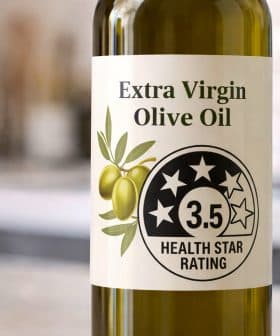Mediterranean Diet May Boost Sperm Quality
Spanish researchers find the benefits of the Mediterranean diet extend to male reproductive health.
A study found that adherence to the Mediterranean diet improves sperm quality, which is important for couples trying to conceive as male infertility accounts for 25 percent of cases. The research suggests that consuming nutrient-rich foods like fish, fruits, and vegetables can positively impact male fertility, while processed meats, alcohol, and caffeine can have a negative effect.
Experts estimate that 25 percent of infertility is due to disorders of the male reproductive system. A new study may help couples trying to conceive, as it found adherence to the Mediterranean diet (MedDiet) improves sperm quality. The discovery reveals one more advantage for following what is widely believed to be the world’s healthiest diet.
It’s pretty simple. Nutritionally-dense food is better for any body function than nutritionally-devoid food.
Infertility afflicts 15 percent of couples around the world. The condition can often be treated successfully with medications or surgery. When standard measures fail, other procedures are available, but some can be extremely costly and are not covered by health insurance. It’s good to be aware of a free intervention that can help without the risk of side effects.
Scientists at the Universitat Rovira I Virgili and the Pere i Virgili Health Research Institute in Spain undertook a systematic review of observational studies that pertained to the effect diet and nutrition have on male fertility. They found low sperm quality is inversely related to diets that are high in healthful nutrients and low in saturated fat and trans fat. Nutrients determined to be of particular importance included omega‑3 fatty acids, vitamin D, folate and antioxidants such as vitamin C, vitamin E, beta-carotene, selenium, zinc, lycopene and cryptoxanthin. The MedDiet is rich in all of these dietary constituents.
Analysis of the data showed specific foods were linked to high quality as well as low-quality semen. Fish, poultry, whole grains, fruits and vegetables were associated with several parameters that were indicative of high-quality sperm; while processed meat, potatoes, soy products, cheese, sweets, sugary beverages, alcohol and coffee were connected to low-quality sperm. Moreover, a substantial intake of red meat, processed meat, caffeine and alcohol had a negative effect on fertilization rates. As the Mediterranean diet is largely comprised of whole grains, fruits, vegetables, fish and olive oil, it was the logical recommendation for couples who desire to have a child.
The findings come as no surprise to Philip Werthman, urologist and director of the Center for Male Reproductive Medicine and Vasectomy Reversal in Los Angeles, CA. In an interview with Olive Oil Times, he said, “The study provides evidence of something I’ve known for two decades — what comes into your body affects what comes out of your body. It’s pretty simple. Nutritionally-dense food is better for any body function than nutritionally-devoid food.”
“Furthermore, processed meat contains hormones that can affect fertility,” Werthman added. “Another benefit of the MedDiet is that it minimizes the risk of obesity, a problem that impairs both male and female reproductive health.”
The researchers said the review provided a thorough examination of studies dealing with male fertility and diet, which can lead to food consumption advisories in the future. They concluded that men’s adherence to a healthy eating plan, such as the MedDiet, could have a significant influence on the ability of their partner to conceive. The study was published in the journal Human Reproduction Update.









